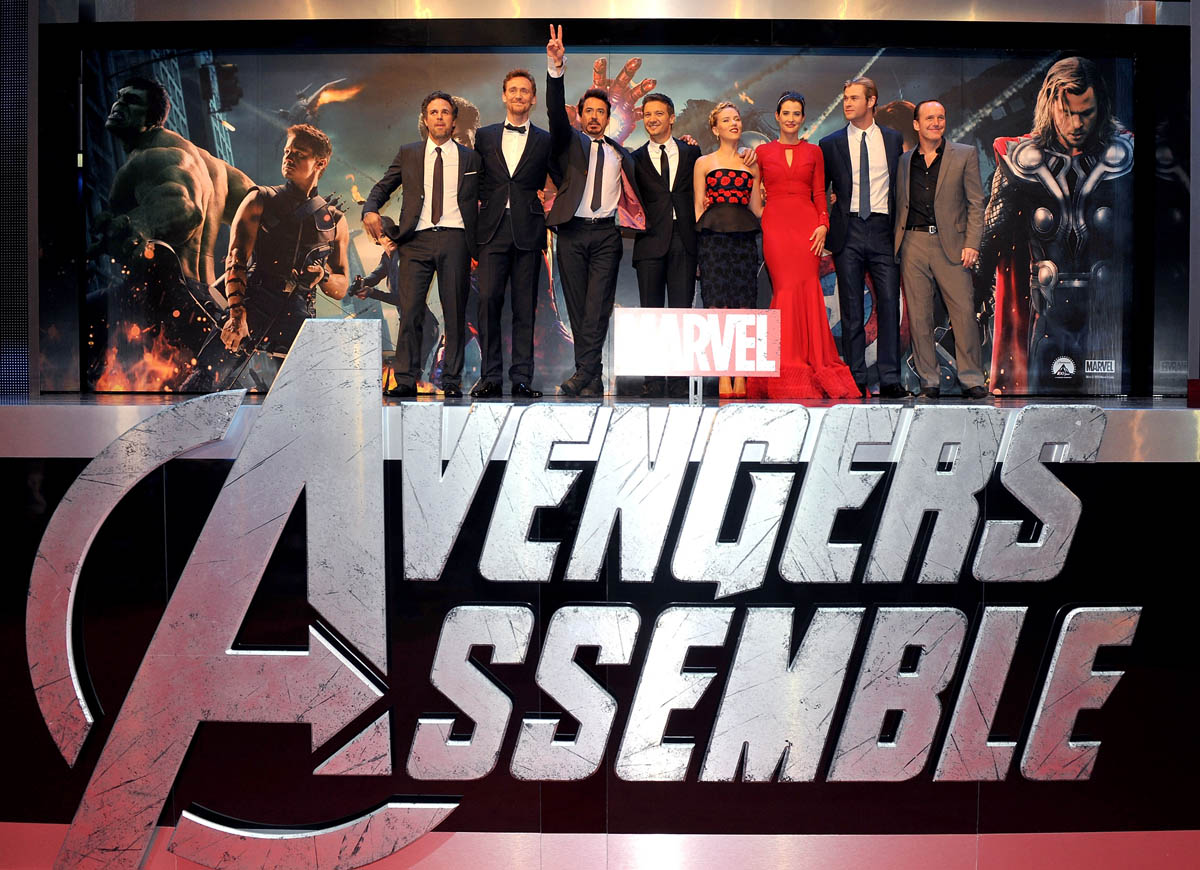
Dear Gossips,
This week marked the tenth anniversary of The Avengers, which opened on May 4, 2012. I don’t typically mark film anniversaries unless it’s a movie I really, really love like Point Break, or Ocean’s 11, but it’s hard not to think about how The Avengers, and Marvel, have changed the film industry over the last decade. Especially today, as the latest Marvel movie opens in theaters, and their most recent Disney+ show wrapped up this week (more on both later). It’s so hard to remember now, but way back in 2010, when the cast of The Avengers and the director, Joss Whedon, gathered at Comic Con, it seemed like a total shot in the dark. Sure, Iron Man was popular, but no one knew how characters like Thor and Captain America would play with general audiences, let alone if a “cinematic universe” was a concept people would buy into.
Ten years later, Marvel is the biggest thing going in pop culture, and the MCU is a household name. People toss off references to Thanos and Infinity Stones casually in all contexts, they’ve become proper shared cultural touchstones. But more than the geek takeover of pop culture, the real impact of Marvel and The Avengers is the changed shape of the theatrical landscape. They didn’t do it alone, streaming played a role throughout the 2010s as people adjusted to the convenience of on demand viewing, but The Avengers was the first movie to make $200 million in an opening weekend, and almost overnight everyone in Hollywood started chasing that kind of success. Other movies would go on to make $200 million and more, and Avengers: Endgame is opened with over $350 million (all these numbers are unadjusted for inflation), but in the pursuit of Avengers-level success, we saw the struggles of Warner Brothers/DC to put together a Justice League cinematic universe, and the DOA collapse of Universal’s Dark Universe, but more, we saw the consolidation of blockbusters at the cinema.
The mid-level movie was already struggling by 2012, but everyone chasing The Avengers’ records drove the final nails into that coffin, and now, ten years on, and hastened by the pandemic, we’re in a theatrical landscape where even totally rad movies like The Northman struggle at the box office. It’s not a lack of quality, there are as many good movies made today as there were then, or at any point in cinematic history, but they don’t stay in theaters long, if they make it there at all. Even a widely regarded crowd pleaser like Everything Everywhere All At Once is a modest hit, and now that summer blockbuster season is officially upon us, it’s sure to see significant drops in box office as the new Marvel movie, and then the new Top Gun movie, followed by the next new Marvel movie, take over theaters and limit screens for anything else.
I generally enjoy Marvel movies, and I’m not blaming Marvel or The Avengers for the current, rather dire, theatrical landscape, but it’s hard not to look back at May 2012 as the turning point when a theatrical tradition that supported a robust array of films of varying budgets and scope ceased to exist almost overnight. And I can’t help but wonder what the next ten years will bring. What if Marvel movies start struggling? Right now, they’re basically the only sure thing at the box office, and they’re almost single-handedly propping up post-pandemic box office. But if audiences lose interest in Marvel, or superheroes in general? If people start ignoring blockbusters, even good ones, what happens then? Do mid-budget movies come roaring back, or do theaters die off completely?
I’ve always believed theaters will stick around in one form or another because people like going to the movies, but if—when—the bottom falls out of the blockbuster egg basket, I just don’t know what will happen. At this point, audiences are pretty well trained to stay home for anything character-driven or non-action oriented, and even action movies have to make do with smaller “specialty” audiences if they’re based on original ideas, like The Northman and Everything Everywhere (and The Northman is stretching it, as it has roots in medieval literature). It just seems like audiences won’t turn out in big enough masses for anything new or the least bit risky, at least not in numbers enough to support the movie business as we’ve known it for 100 years. Again, that’s not Marvel’s fault and the audience shares a portion of the blame, as do rising ticket prices and stagnant wages, but it does feel like the industry is worse off today than it was a decade ago. Ten years on, we can look back at The Avengers and say, That’s the moment things started to change. In twenty years, will we look back and say, That’s the moment things started to die?
Live long and gossip,
Sarah




































































